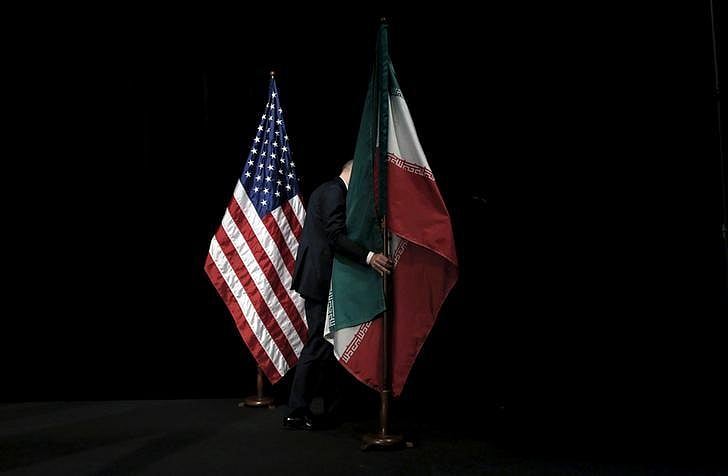While the 8th round of the Vienna nuclear talks have adjourned for now amid initial signs that progress has been made, the US, Iran and Israel must now tread carefully in the coming few days and weeks.
What happens in Iraq and Syria in relation to attacks on US bases by pro-Iranian militias must not get out of control if Washington and Tehran want to revive the 2015 nuclear agreement. Also Israel must be careful not to find itself dragged into an inconclusive confrontation with Iran.
None of the three players is in a comfortable position right now. Iran, under a new leadership, is facing mounting internal dissent over a collapsing economy and acute water shortages. It knows that immediate relief can only come if US oil sanctions are lifted and that it can sell its oil in the open market without hindrance.
Time is not on its side even as its Foreign Ministry says that there is no time limit to reaching an agreement. Its demands could be met by the West but not without genuine concessions.
Other conditions, like receiving a guarantee that the US will not back down once more from the agreement, are impossible to meet. President Joe Biden cannot make that pledge and only if the US Congress ratifies the agreement, which it won’t, can such a pledge be made and only with caveats.
Iran understands that the post-Afghanistan US has a new take on the region as a whole. Perhaps that explains the movement by a number of key regional players to reset ties with former rivals. In the past few days Iran has asked regional countries to convene a conference to discuss the region’s conflicts.
The need to neutralise conflicts has never been greater and only to make sure that non-state actors are contained and that their actions do not lead to major conflagrations.
Time is running out
For the US, time is running out too. The Iran file has occupied much of Biden’s foreign policy agenda last year. He has other issues that need his attention; the trade war with China and South China Sea, Russia’s rising tensions with Ukraine and the need to mollify the fears of his European and Nato partners with regard to Moscow and the fact that the EU is facing internal crises.
Moreover, Biden and his party will face midterm congressional elections this November and he could lose his thin majority in the House of Representatives.
For Israel, the innate rejection of any deal with Iran does not seem sustainable. Already Prime Minister Naftali Bennett is facing pressure from Washington to lower the volume in relation to statements against Tehran.
Bennett is also under fire from the Biden administration for continuing to ignore the White House while authorising additional illegal colonies in the West Bank.
A scenario no one wants
With regard to Israel launching a swift strike against Iran no one doubts that such a strike will do much damage. But it will not kill the Iranian nuclear programm.
The fallout from such a strike may be unimaginable in its proportion. Iran can do much harm to US troops in Iraq and Syria and its proxies like Hezbollah in Lebanon may engage Israel in an open war. It is a scenario that no one really wants.
This is perhaps why Israel’s Foreign Minister Yair Lapid came out a few days ago to say that Israel can accept a “good” agreement between the West and Iran. Of course the devil is in the details. What the West considers a good agreement might not appear so for Israel. America’s Arab allies would want any deal to cover Iran’s drone and ballistic missile programs.
And then there are the pro-Iran militias which could drag everyone into an open conflict. The onus is on Tehran to make sure that its allies in Iraq and Syria do not overreact when marking events around a year since Qasem Soliemnai’s killing. What happens in Baghdad’s Green Zone could very well derail the Vienna talks.
Ironically, all sides must now measure their next step in order to close the circle.
Osama Al Sharif is a journalist and political commentator based in Amman
Sign up for the Daily Briefing
Get the latest news and updates straight to your inbox
Network Links
GN StoreDownload our app
© Al Nisr Publishing LLC 2026. All rights reserved.
